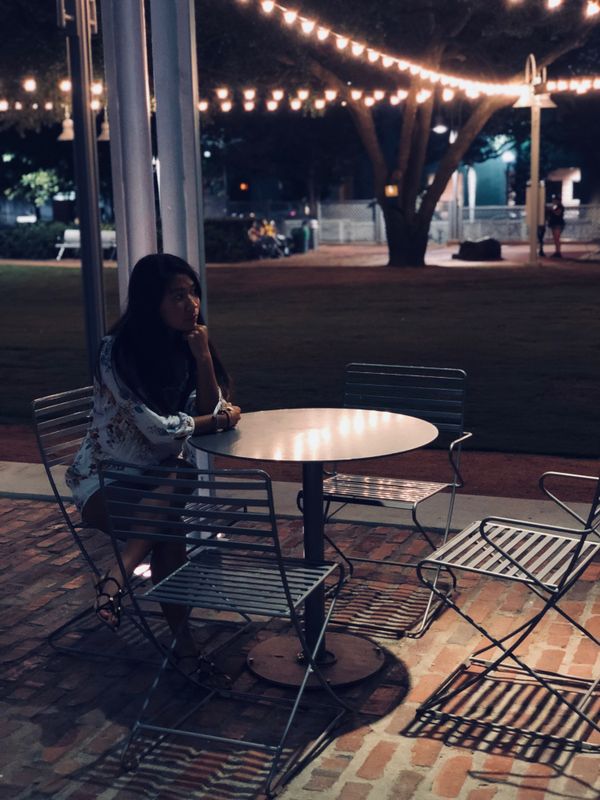If you look up “sorry syndrome”, you’ll mostly find articles about people who use sorry as a quick excuse to get out of negative situations, something that can happen both intentionally and subconsciously. This article will focus mainly on the subconsciousness of the habit and where it derives from (SPOILER ALERT: everyone is different).
A lot of people over-apologize for things, but what if you began every sentence with “sorry”? Or used it in place of normal-people interactions like, “hey”, or “can you please”? People who do this often get reprimanded by their parents or friends because, let’s face it, it gets really annoying to hear. They point out the over-use of the word and tell you not to be sorry and explain to you that you can’t really BE that sorry since you say it so much. But that’s not really the case – you know when you say “sorry” that you should be saying SOMETHING, you know you feel some sort of way, you just end up saying the quickest thing that you were taught to say when someone else is inconvenienced.
If we look back to our collective childhoods, we’re taught to say “sorry” if we don’t meet an adult’s expectations and our would parents use it to publicly shame us if we did something wrong to, or in the presence of, a stranger (so everyone knew how well behaved our parents raised us). After the initial training, we realize that “sorry” can end situations that are uncomfortable for us and can get people off our backs. The behavior works, so why would we ever stop doing it? I’m not saying every child ever grew up into an adult that can’t stop apologizing for existing, but I’m recognizing the people who took this information from their childhood and went a little crazy with it. Since we don’t have looming adults to disappoint anymore, we now use “sorry” as a way to gain acceptance, settle unfavorable situations, and make the people around us more comfortable.
Saying “sorry” too much can affect the way other people see us and treat us; other people are more likely to take advantage of you because “sorry” puts you in a submissive, white-flag-waving role. Just by saying the word, you’re actually placing blame on yourself (which can be confusing to other people when there’s no blame to be placed – see: people who say “sorry” instead of “hello” or “goodbye”). Saying “sorry” is synonymous to saying “you’re right, I’m wrong, it’s my fault”. In turn, you will constantly feel like you did something wrong which relates to depression, anxiety, and self-esteem issues (also the people who are more likely to say “sorry” in the first place – gotta love vicious cycles).
The kind of people who’ve let this habit get out of control tend to feel the need to please everyone else around them, which sounds nice, but they’re actually just making themselves small and insignificant. There are better and easier ways to please people that don’t involve putting their needs so far ahead of yours that you forget to take care of yourself. Women tend to apologize for unimportant things more than men do (especially in the workplace) only because women take more situations to heart and men will save “sorry” for things that they feel are actually important. It’s also a safe way to ask for something politely without offending or appearing demanding. People who experienced childhood trauma or abusive relationships also feel the need to apologize for their actions in order to diffuse negative situations.
So how can you stop apologizing for everything you do? A good way to at least start the process is to have a friend or family member (anyone you’re with) count the times you say “sorry” throughout a day or have them call you out on it as it’s happening. This really opens your eyes to how often it comes out of your mouth. Eventually, you’ll start catching yourself (wait, no, I’m actually NOT sorry this time!) and soon you’ll be able to find replacement phrases for what you actually mean in that moment.
Really listen to yourself and the words you choose; a good start is replacing “sorry” with “thank you”. Instead of saying, “sorry for talking too much”, say, “thank you for listening to me”. Instead of saying “sorry” when someone makes room for you on the bus or the train, say, “thank you for making room for me”. Instead of saying, “sorry you had to do that thing”, say, “thank you for doing that thing for me”. This is a really easy first step that can help in almost any situation, but still keep an eye on the times when you say “sorry” instead of “hello”, “goodbye”, or “excuse me”.





















